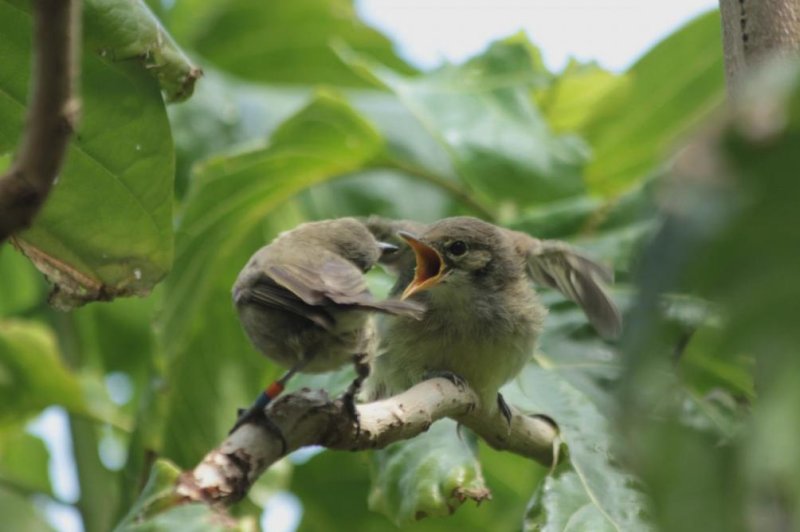A bird feeds a chick belonging to someone else. Photo by Sjouke Anne Kingma
Oct. 23 (UPI) -- New research suggests birds without a brood help raise the offspring of others with the hope of future benefits -- like extra parenting help and new territory.
In roughly 10 percent of bird species, some individuals will delay producing offspring and help care for the newborn chicks of their peers. The behavior has also been observed among a small percentage of mammals, fish and insects.
In a new study, scientists suggest the behavior is akin to making an investment. The birds, researchers argue, aren't being selfless, they're hoping for future returns.
Scientists have previously hypothesized that birds delay breeding and help others that are related to them as a way to ensure their family's genes are passed on. But the latest research suggests helpers don't always assist their kin.
Over the last several decades, Sjouke Kingma, a researcher at University of Groningen in the Netherlands, has been documenting and analyzing brooding and parenting help among many different species of birds.
His analysis showed territorial scarcity is the predominant factor driving the behavior. He found birds who delay reproduction tend to aid parents who control prime real estate. The helpers do so with the hopes of inheriting the territory.
"My research reveals that the home-owners get much more help if the helpers stand to inherit their territory in the future," Kingma said in a news release. "After all, you'd be much more inclined to help someone maintain their home if you thought you'd inherit it one day. This is precisely what a lot of birds do: they help the current owner so that the territory will be worth more when they inherit it."
Kingma shared his analysis in a new paper published this week in the journal Nature Communications.
"Showing that you're prepared to help increases the chance that the nesting pair will tolerate you in their territory, which may ensure that you inherit the territory later on," Kingma added. "In addition, if you help with the current owners' kids, you'll create your own future little helpers. By the time the territory is handed over, the helpful bird will have its own army of little helpers ready and willing to assist."















